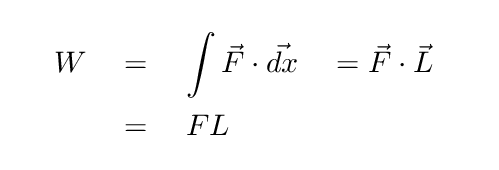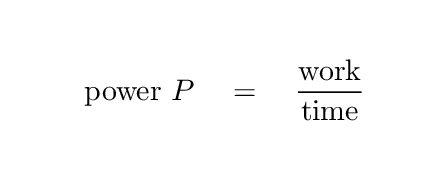
 Copyright © Michael Richmond.
This work is licensed under a Creative Commons License.
Copyright © Michael Richmond.
This work is licensed under a Creative Commons License.
Work is a measure of energy. If I lift a book of mass m = 1 kg upward a distance of L = 1 m against the force of gravity, I need to produce

a total of 9.8 Joules of work. Fine.
But it takes the same amount of energy whether I lift the book quickly, in just 1 second, or if I very very sl-o-o-o-o-wly raise the book over 20 seconds. The same number of Joules, yes .... but something is different.
The difference there is in the RATE at which I do work. We have a name for the rate at which energy is used: power.

Q: What are the units of power?
Let's see how much power a person can produce. We'll run an experiment:
Q: How much work will the volunteer do? Q: How much power will the volunteer produce?
After we've made the measurements and computed the power of our student volunteer, we can compare it to the power produced by a horse. You may have heard of a "horsepower" -- it is based on the amount of work that a horse could do over an entire day. In metric terms, one horsepower is about 746 Watts.
Is our volunteer equal to one horse?
 Copyright © Michael Richmond.
This work is licensed under a Creative Commons License.
Copyright © Michael Richmond.
This work is licensed under a Creative Commons License.